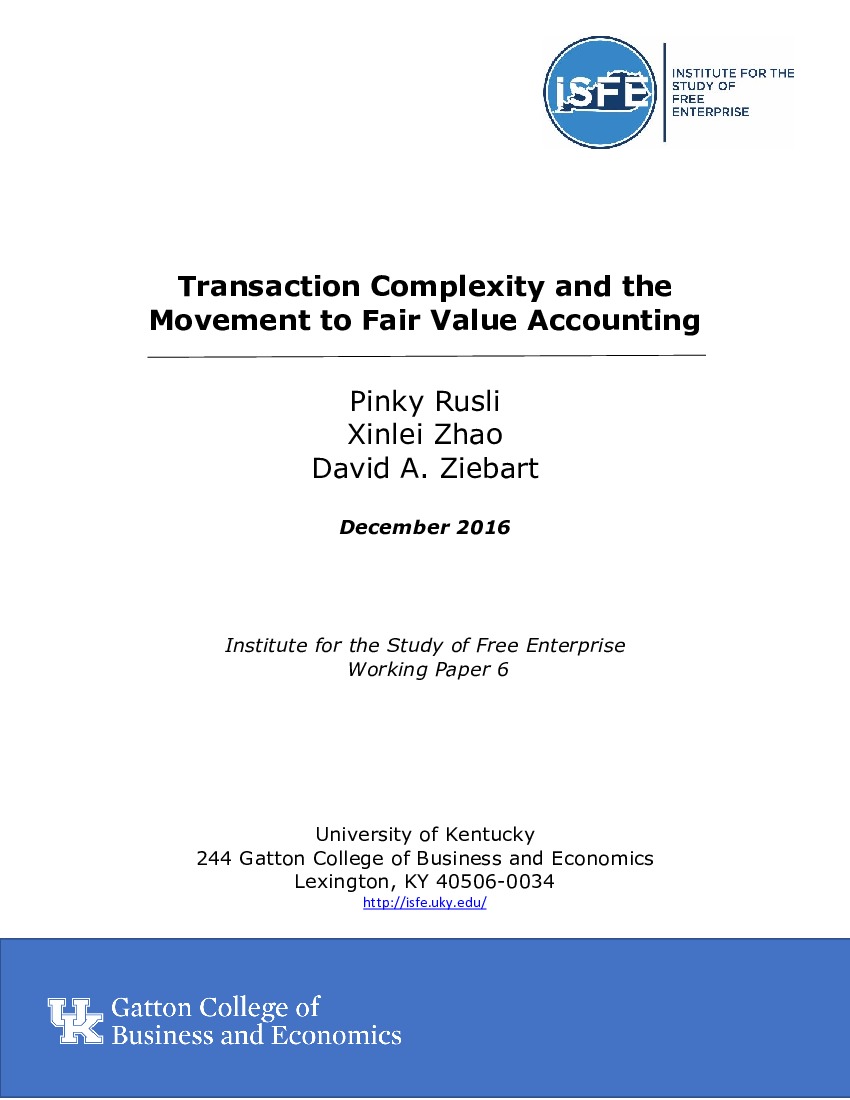Transaction Complexity and the Movement to Fair Value Accounting
Pinky Rusli
Montana State University
Xinlei Zhao
University of Kentucky
David A. Ziebart
University of Kentucky
Funded by ISFE Summer Grant
Abstract: Our global economy has pushed the complexity of business transactions to a new level, as companies now employ sophisticated contracts and financial instruments. However, it is unclear whether accounting standards are able to effectively capture transaction complexity, which has been growing at a rapid pace. In this study, we examine three questions related to transaction complexity: (1) Do accounting standards reflect differences in the complexity of the transactions being recorded? (2) Does the use of mark-to-market (i.e., fair value) accounting reduce the complexity of standards by relying on market valuations to capture transaction complexity? (3) Does the reliance on fair value measurements reduce audit costs for transactions with significant complexity? Our findings suggest that complex transactions result in complex accounting guidance, making the standards difficult to read and understand. However, the use of fair value accounting might be a solution to the challenges arising from transaction complexity. Our study informs regulatory bodies, investors, creditors, and public companies that are increasingly concerned about the state of financial reporting standards, which arguably have become very costly to implement yet less effective in communicating the economic substance of complex transactions.
Released: December, 2016

 Twitter
Twitter Facebook
Facebook